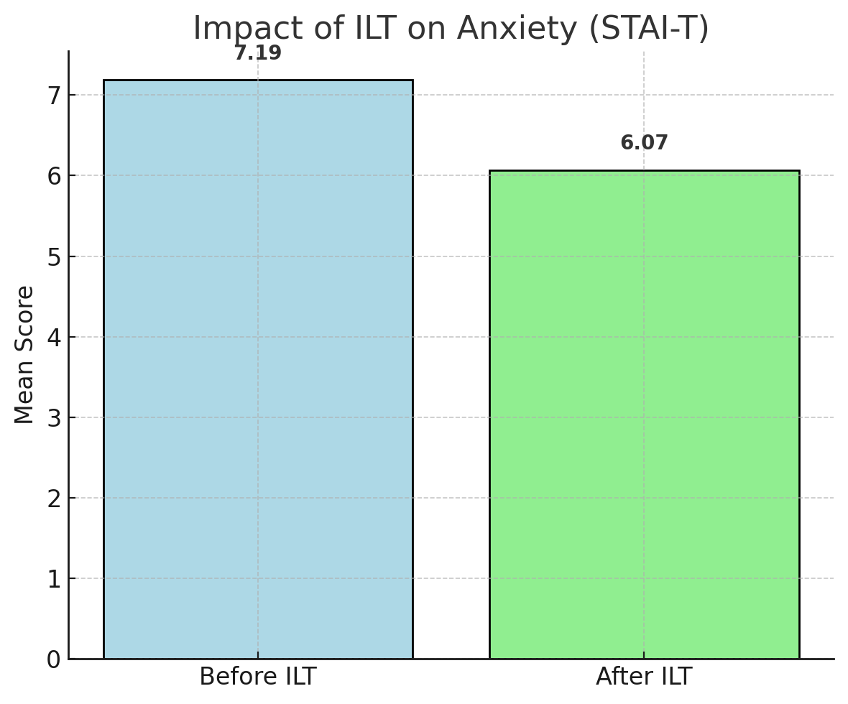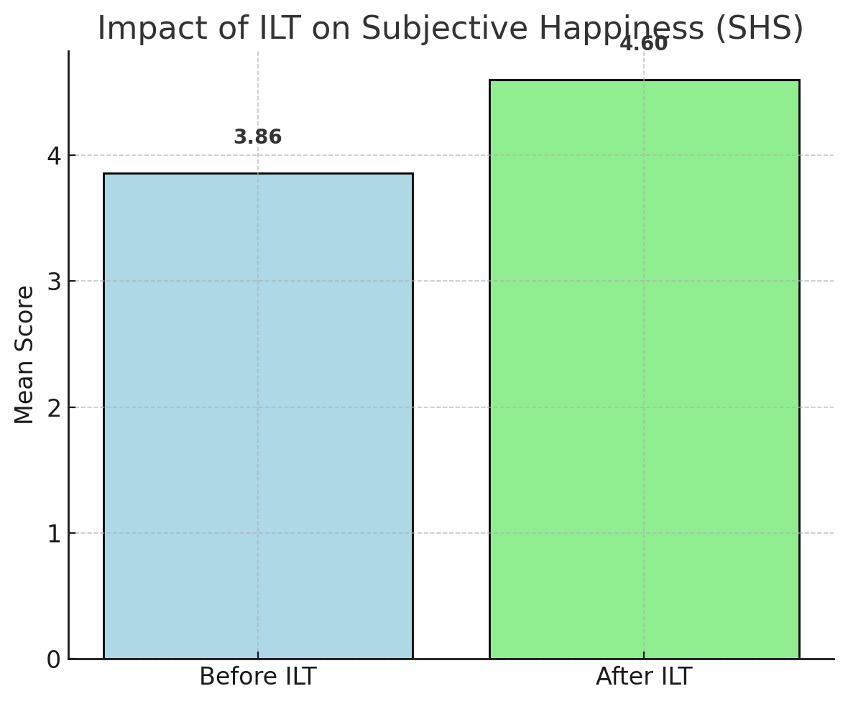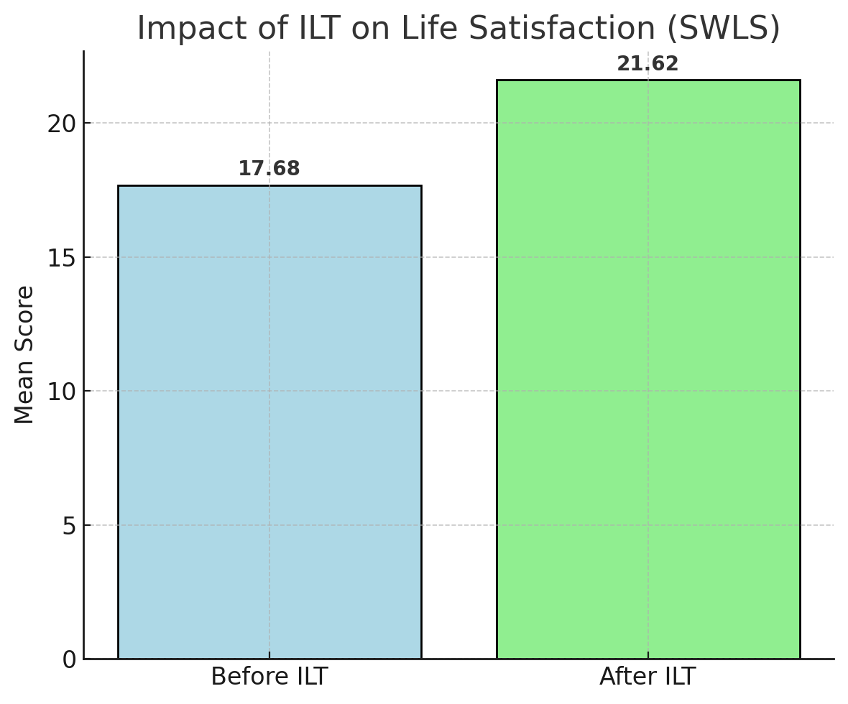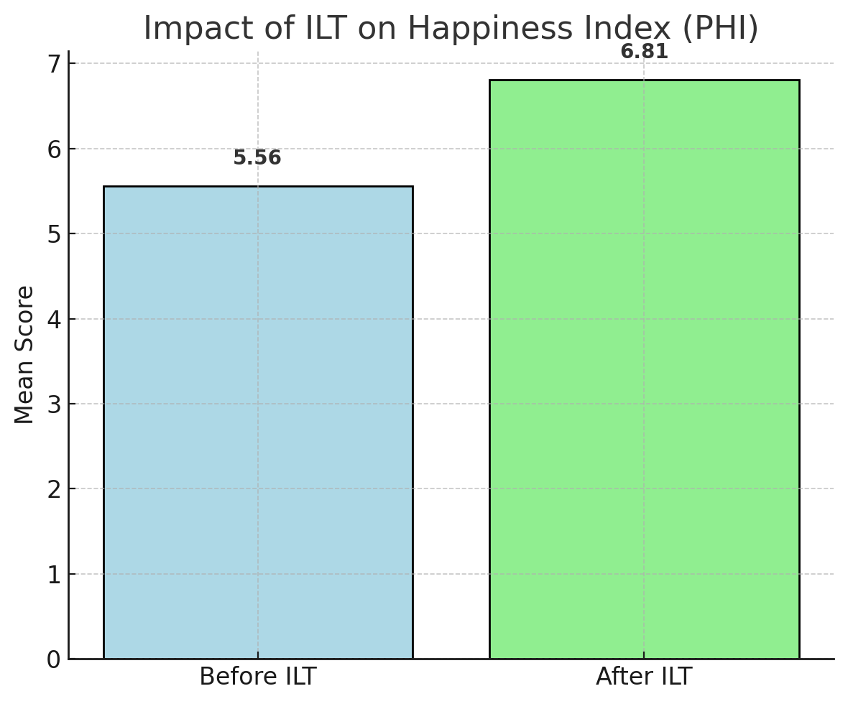
Who Did the Study, Where and When?
- Conducted by: Mental health professionals and researchers from:
- Universitat Autònoma de Barcelona (Spain)
- Hospital de la Santa Creu i Sant Pau, Barcelona
- IIB Sant Pau and CIBERSAM (research centers)
- Published: October 30, 2019
- Location: Barcelona, Spain
- Participants: Adults (aged 24–70) receiving treatment for:
- Substance Use Disorders (alcohol, cocaine, cannabis, opioids)
- Gambling Addiction
Purpose of the Study (Objectives)
The researchers wanted to know if adding Integrative Laughter Therapy (ILT) to regular hospital treatment would help patients:
- Feel better about themselves (self-esteem)
- Feel less anxious
- Feel happier and more satisfied with life
They focused on measuring improvements using standardized mental health questionnaires.
Methodology (What They Did)
Participants:
- 185 patients started the study
- 117 patients completed the 2-month program (37 women and 80 men)
Group Division:
- TAU Group (Control): Got only regular hospital treatment
- TAU + ILT Group (Experimental): Got regular treatment plus 9 laughter sessions (one per week, 90 minutes)
ILT Session Format (same for all sessions):
- Ice-breakers & games to help participants relax
- Creative activities to develop humor and playfulness
- Laughter Yoga exercises (e.g., wave laughter, partner laughter)
- Relaxation + sharing feelings at the end
Each session had a unique theme, such as:
- Self-esteem
- Managing emotions
- Letting go of internal blocks
- Creativity
- Building trust

Results (What Happened After 2 Months?)
1. Self-Esteem Increased
- TAU group: No major change
- TAU + ILT group: Significant increase from 27.67 → 31.23

2. Anxiety Decreased
- TAU group: Little improvement
- TAU + ILT group: Clear drop from 7.19 → 6.07 (on a 10-point scale)

3. Happiness Improved
- SHS (Subjective Happiness): 3.86 → 4.60
- SWLS (Life Satisfaction): 17.68 → 21.62
PHI (Overall happiness): 5.56 → 6.81


What the Graph Above Shows
The bar graph you saw earlier compares these before-and-after scores in the TAU + ILT group. It shows visible improvements in every area due to laughter therapy.
Study Limitations
- It was not a randomized trial, meaning people chose whether to attend ILT or not.
- The group sizes were uneven (99 vs. 18).
- Results only apply to day hospital settings in Spain—not necessarily to outpatient or residential rehab.
Conclusions in Simple Words
-
This study proves that laughter therapy really works as an added tool in addiction recovery. It helps patients feel:
- More confident
- Less anxious
- Happier and hopeful
Adding laughter to regular treatment amplifies the healing process.
Please click on the link to get the original research study
https://pmc.ncbi.nlm.nih.gov/articles/PMC6862057/


